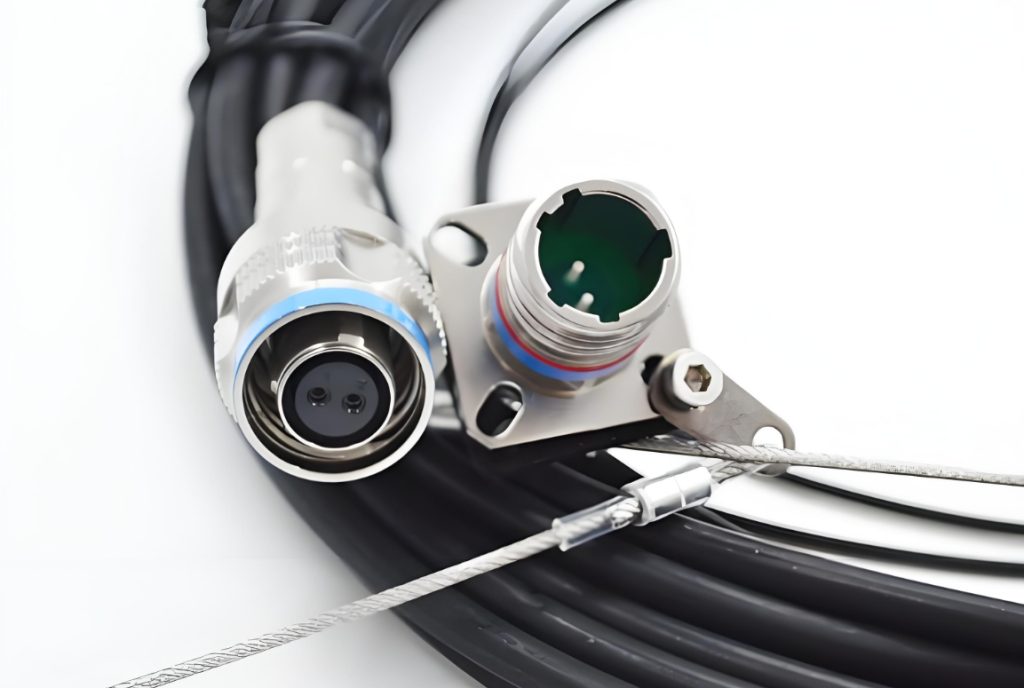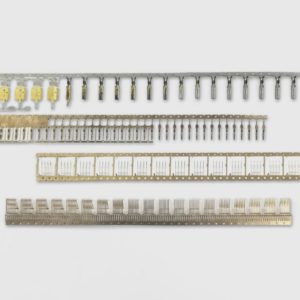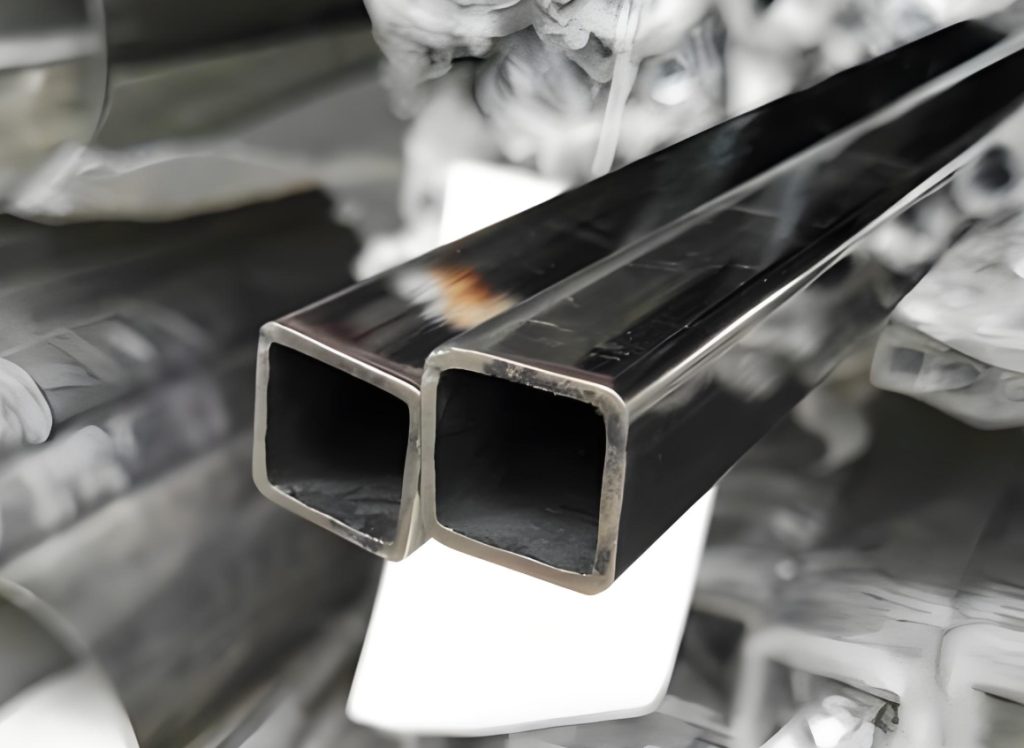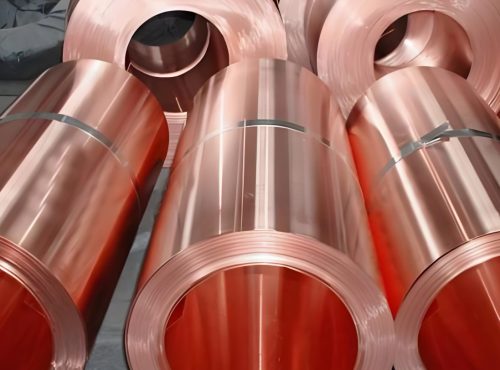Precision Connector Mold Manufacturing
Engineer the Future with Connector Molds Built for Precision, Durability, and Performance.
Fecision delivers custom injection molds, stamping dies and die-casting molds achieving micro-tolerances (e.g., ±0.005mm) for your most demanding electronic applications.
----Who We Are
Your Trusted Partner for Precision Connector Mold Tooling
Fecision manufactures precision connector molds for high-volume production needs. Specializing in injection molds for plastic housing and inserts, stamping dies and die-casting molds for metal housing, pins and terminals, our ISO-certified workshops produce tooling with high tolerances from prototype to full-scale production.
Complete Manufacturing Capability
Comprehensive CNC Machining and Post-processing Techniques
20-year Experienced Engineer Team
Professional Engineers Support DFM and Mold Flow Analysis Needs
Quality Traceablility System
In-Process Inspection with CMM (Coordinate Measuring Machine)
Partner with First-Tier OEMs
Long-term Supplier for Top-tier Enterprises in Connetor Industry
——————————————————————————————————————————————————————————————————————————————————————————————————————

Electronic Connector Molds for Production Needs
Connector, which usually refers to an eletronic connector, is a device that temporarily connects conductive paths to transmit current or signals. Its main parts include plastic or metal housing, terminals/contacts, and some inserts such as insulators or seals.
The two key components of the connector – housing and terminal/contact are generally manufactured through injection molding, metal stamping, and die casting to meet the needs of high precision and fast mass production.
Fecision is deeply involved in the field of precision mold tooling. Based on our years of experience in the connector industry, we can provide customers with customized connector molds to meet their connector production needs.
Molds for Different Connector Parts
Different connector parts may be suitable for different molding methods, which is generally affected by the shape and material of the parts.
Fecision has the ability to process different types of molds and can meet the needs of various connector mold generation.

Metal Housing
complex shell of connector
manufactured through die-casting

Terminal Blocks
components for eletrical connection
manufactured through injection mold

End Cap
cold runner mould
manufactured through injection mold

Backplane Connector
insert molding
manufactured through injection mold

Cage
complex structure
manufactured through stamping die

Strip Terminals
high speed up to 1000SPM
manufactured through stamping die

Socket Terminals
high precision contacts
manufactured through stamping die

Pin Terminals
high precision contacts
manufactured through stamping die

Crimp Terminals
round and square contacts
manufactured through stamping die
Comprehensive Mold Tooling Solutions Under One Roof
Our Connector Mold Manufacturing Services
Fecision provides end-to-end mold design, manufacturing, and validation services tailored specifically for the unique demands of the electronic connector industry.
We are your ideal source for both plastic component molds and metal terminal dies.

Mold Design & DFM

Prototyping

Precision Injection Mold Making

High-Speed Stamping Die Making
Materials Used in Mold Construction
Connector products are precision parts that require very high precision. Therefore, when selecting mold materials, it is necessary to comprehensively consider the material’s heat resistance, stability, hardness and other properties.
Different connector products require different mold materials, and the following types are usually selected:

Tool Steel

Stainle Steel

Aluminum

Beryllium Copper
Injection Molding Process for Cable Connectors
The Process of Manufacturing Molded Cable Connectors
Molded cable connectors are devices that provide safe and efficient connections for power and signal transmission, and are widely used in a variety of industries such as automotive, aviation, and industrial equipment. These connectors are usually manufactured using injection molding to ensure tight tolerances, complex geometries, and consistency in mass production.
The key steps of the cable connector injection molding process are summarized below:
1. Material Selection
Choose the right connector material, usually TPE, TPU or polycarbonate, to ensure insulation, durability and flexibility.
2. Mold Design
The mold is usually made of steel or aluminum, and the cavity needs to be designed to correspond to the shape of the cable connector.
3. Heating & Injection
The selected material is heated to a molten state and then injected into the mold cavity under high pressure to completely fill the mold cavity. The mold is usually held under pressure for a few seconds to allow the material to solidify before cooling.

4. Cooling
This step allows the material to harden and form the desired material. The cooling time depends on factors such as material thickness and mold design.
5. Ejection
An automatic ejection system is usually used to eject the cooled molded connector from the mold cavity, and trimming or deburring may be required.
6. Quality Control & Inspection
After the molded cable connector is produced, it needs to undergo a series of quality control tests such as dimensional inspection, mechanical testing and electrical performance testing to ensure that it meets the specification requirements.
If the connector parts are made of metal, they will be subjected to a post-processing process after manufacturing is completed – electroplating. This process actually applies a metal coating to the connector shell to enhance its conductivity and prevent rust and wear. The three most common electroplating materials are:
Olive Drab Cadmium
Eletroless Nickel
Black Zinc Nickel
Key Features of Fecision Connector Molds
Electronic Connector Molds: Engineered for Excellence
Our molds are not just tools; they are precision instruments engineered to deliver superior performance, reliability, and efficiency in your connector production.
Precision & Micro-Tolerance Capability
Our molds are manufactured using state-of-the-art CNC (±0.005mm) and EDM technology, consistently achieving micro-tolerances essential for fine-pitch connectors, complex interfaces, and ensuring perfect part interchangeability across millions of cycles.
Capability for Complex Geometries
From intricate locking mechanisms and ultra-thin walls to micro-scale features and complex core pulls, our advanced mold design and manufacturing capabilities turn your most challenging connector designs into reality. We excel at molds requiring complex sliders, lifters, unscrewing mechanisms, and precision inserts.
Exceptional Durability & Extended Mold Life
Maximize your production uptime and minimize costs. We utilize premium mold steels (e.g., H13, S136, Stavax) selected for your specific application, combined with expert heat treatment and optional PVD coatings.This ensures exceptional wear resistance and corrosion protection.
Advanced Molding Processes
Our molds are expertly designed for insert molding, ensuring precise placement and secure bonding of metal terminals or other components. We also provide robust solutions for overmolding (e.g., sealing gaskets, strain reliefs) and two-shot molding, enabling multi-material or multi-color components.
Mastery of High-Performance
We have extensive experience building molds optimized for difficult-to-mold resins common in connectors (LCP, PPS, PBT, PEI, PEEK, thermosets). Our designs address high melt temperatures, precise temperature control, optimal venting, and specific gate/runner configurations to ensure consistent filling and defect-free parts.
Optimized Production Efficiency
We incorporate advanced cooling channel designs (including conformal cooling options) for reduced cycle times. Precision surface finishes and coatings enhance part ejection and reduce maintenance. Our molds are designed for ease of maintenance and efficient setup.
Key Advantages of Using Molded Connectors
Connectors play an important role in realizing complex functions of electronic devices. They often need to withstand harsh environments and support ease of use, durability and cost-effectiveness. Therefore, it is particularly important to ensure the quality of connector manufacturing.
Compared with other production methods, molded connectors have significant advantages in terms of precision, life, cost and other aspects.
Durability & Longevity
Molded connectors are rugged and highly durable to withstand harsh environments such as extreme temperatures, moisture, and exposure to chemicals.
Consistency & Precision
Forming methods such as injection molding and stamping can achieve high-precision manufacturing to ensure consistent part production.
Compact & Lightweight
Molded connectors are compact and lightweight, and their design can be optimized, making them ideal for applications with limited space.
Cost-Effectiveness
Forming methods such as injection molding and stamping are cost-effective manufacturing methods suitable for high-volume production needs. Molding process can be automated, which reduces labor costs and improves efficiency, achieving cost reduction.
Versatility
Molded connectors can be designed and applied in a variety of scenarios, from simple power connections to complex data transmission systems. Different design solutions can meet diverse product application needs.
Electrical Performance
Molded connectors provide excellent electrical performance based on the high-quality performance of their component materials and manufacturing consistency, providing safe and stable connections even under harsh conditions.
Fecision Mold Manufacturing Network
In response to different service types and diverse business needs, we have deployed suppliers with different manufacturing capabilities.
Delivering Precision Molds Across Key Electronics Sectors
Industries We Serve
We provide high-performance connector molds for critical applications in:
Your Strategic Partner for Connector Mold Success
The Fecision Advantage: Why Partner With Us?
Validated Performance, Guaranteed Quality
Commitment to Quality & Validation
We employ rigorous validation protocols, including in-process and final CMM inspection, steel certifications, heat treat certifications, and comprehensive mold trials (T1, T2...) to ensure your mold performs flawlessly and meets all specifications from the first shot. Trust our ISO-certified quality system.




Start your project now

Request a Proposal
Let us bring your vision to life.
Share your project details, and we’ll craft a tailored proposal just for you.









